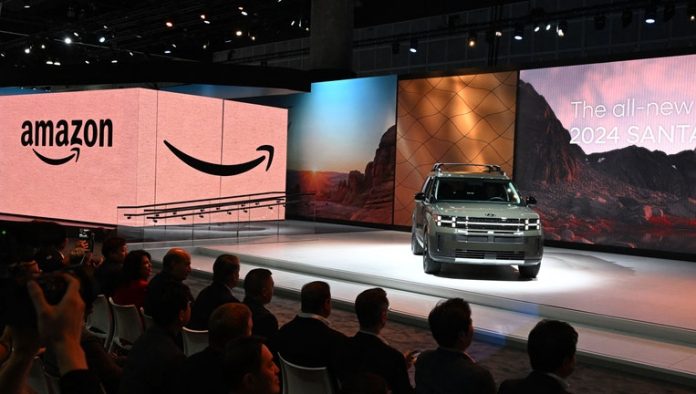Amazon is extending its influence beyond traditional e-commerce by venturing into the automotive market with Amazon Autos. This new initiative could position the tech giant as a formidable competitor in the car-buying space, particularly as Walmart’s Carsaver partnership remains reliant on third-party services for transactions.
”Amazon is Banking on Reputation”
Unlike Walmart, which facilitates car sales through external partnerships, Amazon plans to integrate auto purchases directly into its ecosystem. This approach aims to streamline the buying process by leveraging Amazon’s platform features such as reviews, star ratings, Prime perks, and Alexa integration. “Amazon is banking on its reputation as ‘The Everything Store’ and the trust it has built with consumers,” said Michael Zakkour, Founder of 5 New Digital, in an interview with PYMNTS.
Amazon’s Partnership with Hyundai
Amazon’s initial partnership with Hyundai allows the company to gather insights, refine its strategies, and disrupt the auto industry. This move mirrors Amazon’s playbook for entering new categories: focusing on convenience, competitive pricing, and technological innovation. By offering end-to-end services, including financing and delivery, Amazon hopes to redefine online car buying and attract a broader audience.
The Significant Challenges Ahead for Amazon
Despite its potential, Amazon faces significant challenges. Car buying is unlike purchasing books or electronics—it involves high-ticket decisions, specialized logistics, and a preference for in-person experiences like test drives and negotiations. “Amazon must address these gaps with solutions such as test-drive partnerships,” Zakkour noted. Managing returns, inspections, and registrations will add further complexity.
However, Amazon’s financial strength and logistics expertise could give it an edge over competitors like Carvana and Vroom. These companies have made strides in used car sales but struggle to capture a mass audience for new vehicles. By undercutting prices and integrating Prime benefits, Amazon could offer unmatched convenience and value.
Arias Websterberry, CEO of WebsterBerry Marketing, highlighted Amazon’s advantage in consumer trust and reliability. “Millions of users already associate Amazon with convenience. Competitive pricing and streamlined services could build confidence in online car purchases,” he explained. Websterberry also pointed to potential innovations, such as scheduling test drives or receiving car maintenance reminders through Alexa.
Nelson Pereira of Publicis Sapient emphasized that while Amazon’s scale and resources are significant assets, traditional elements of car buying—like trade-ins and after-sales services—remain critical. “Cars aren’t gadgets. Many buyers still prefer in-person experiences,” Pereira said. The future lies in blending digital-first convenience with the trust and touchpoints of traditional dealerships.
Amazon’s entry into auto sales could push the industry forward, offering a seamless experience for digital-first consumers while challenging established players. Whether Amazon can overcome the inherent complexities of car buying remains to be seen, but its disruptive potential is undeniable.








